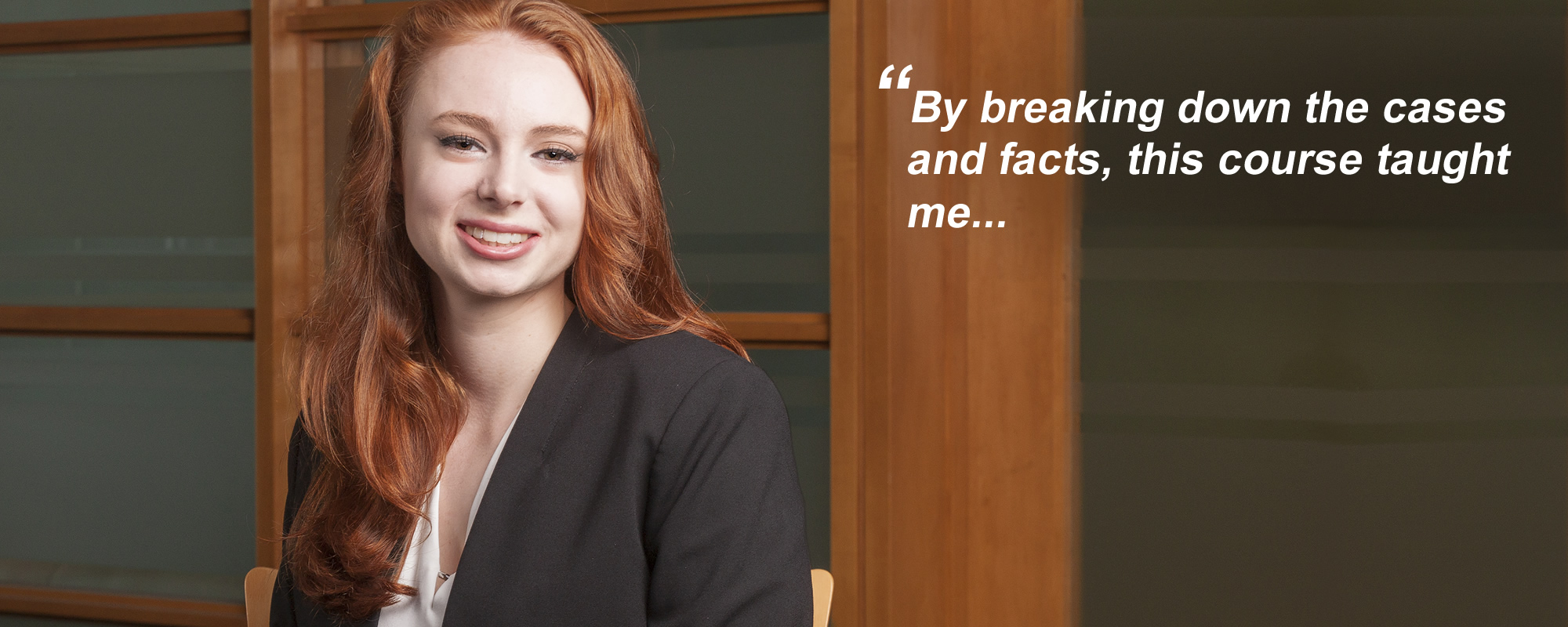A primer on power in Canada.
Who holds power in our nation – and what power do you, as a citizen, hold in turn? Get an in-depth look at the structures and construction of our government and legal systems, and learn about your rights, democracy, and the basic principles underpinning every issue in Canadian law.
Public and Constitutional Law provides an overview of general principles of public law, focusing on the institutions and organs of government, the sources and nature of the legal rules that create them, and the limits on their powers.
The course also introduces the essential elements of the Canadian legal system, such as democracy, the rule of law, constitutional supremacy, parliamentary sovereignty, judicial independence and federalism. The course will cover the rights enshrined in the Canadian Charter of Rights and Freedoms, as well as those Aboriginal and treaty rights guaranteed by Section 35 of the Constitution Act, 1982.

Kyra McAlister
This course dives into the cases and judicial decisions that have shaped Canadian law and gave me an appreciation of the complexity of constitutional law. By breaking down the cases and facts, this course taught me a lot about the underlying logic of legal reasoning and strengthened my analytical skills. By the end of this course, I was better able to apply and understand Canadian laws, and I had developed analytical skills that I can apply to my future studies.
Kyra McAlister
Course Learning Outcomes (CLO)
By the end of this course, students should be able to:
- CLO 1: Distinguish between public and private law.
- CLO 2: Apply the hierarchy of public law rules.
- CLO 3: Summarize Canada’s gradual constitutional evolution from a colony of the United Kingdom to an independent country.
- CLO 4: Assess the constitutional basis for the protection of human rights in Canada.
- CLO 5: Compare the roles and responsibilities of the executive, legislative, and judicial branches of government.
- CLO 6: Evaluate the interaction between the three branches of government and the appropriate institutional relationships between them.
- CLO 7: Differentiate between legal and political constitutionalism and accountability.
Course Offering (may be subject to change)
Public & Constitutional Law (Law 205/705) is offered every January and May.
Assessment Weighting (may be subject to change)
| ASSESSMENT TOOL |
WEIGHT |
| Quizzes (Individual) |
15% |
| Discussions (Individual) |
15% |
| Division of Powers Assignment (Individual) |
15% |
| Division of Powers Peer Review |
5% |
| Canadian Judicial Council Group Report |
15% |
| Canadian Judicial Council Self & Peer Evaluation |
10% |
| Final Assessment |
25% |
Course Materials
There is no required textbook for this course
